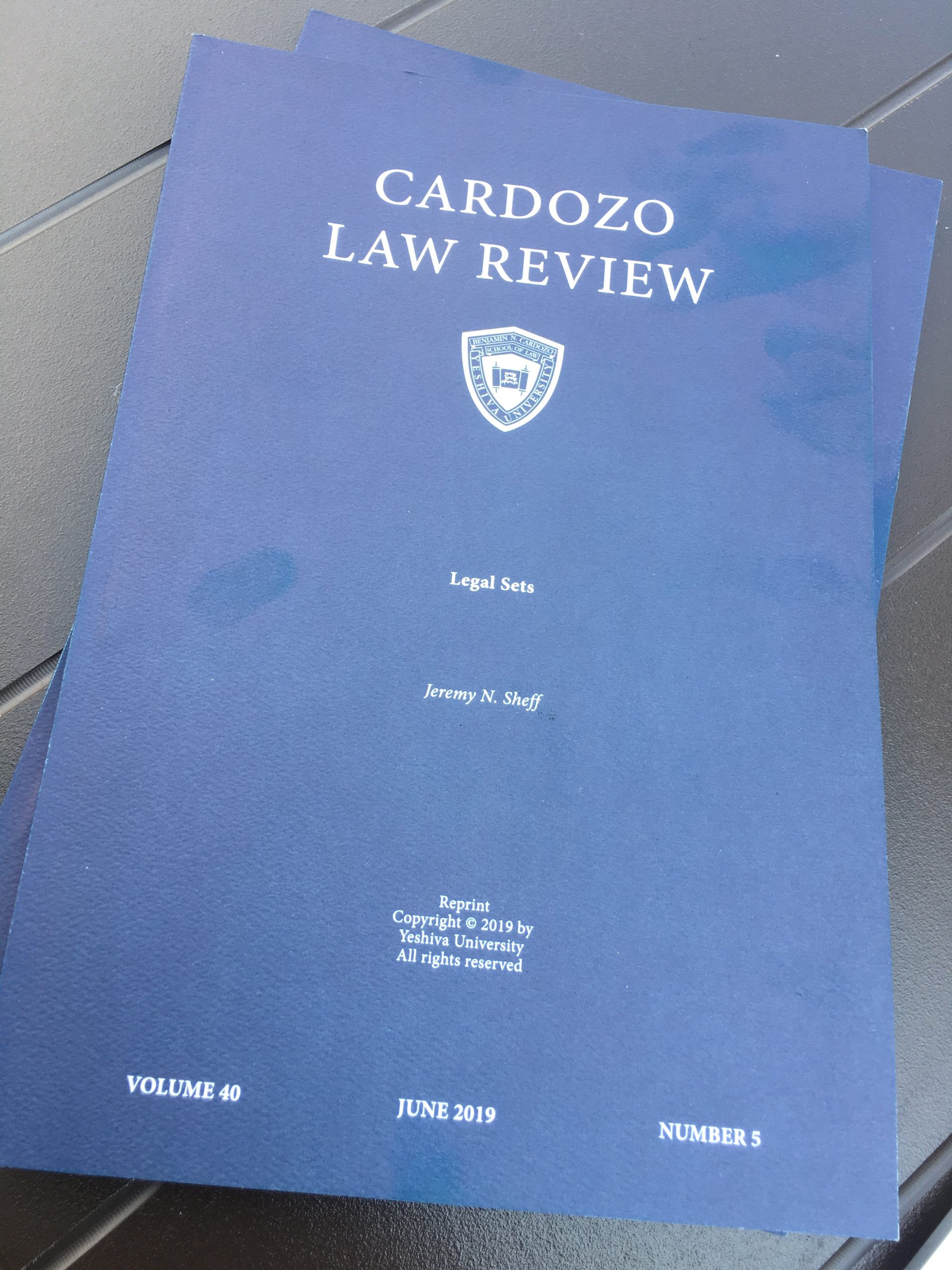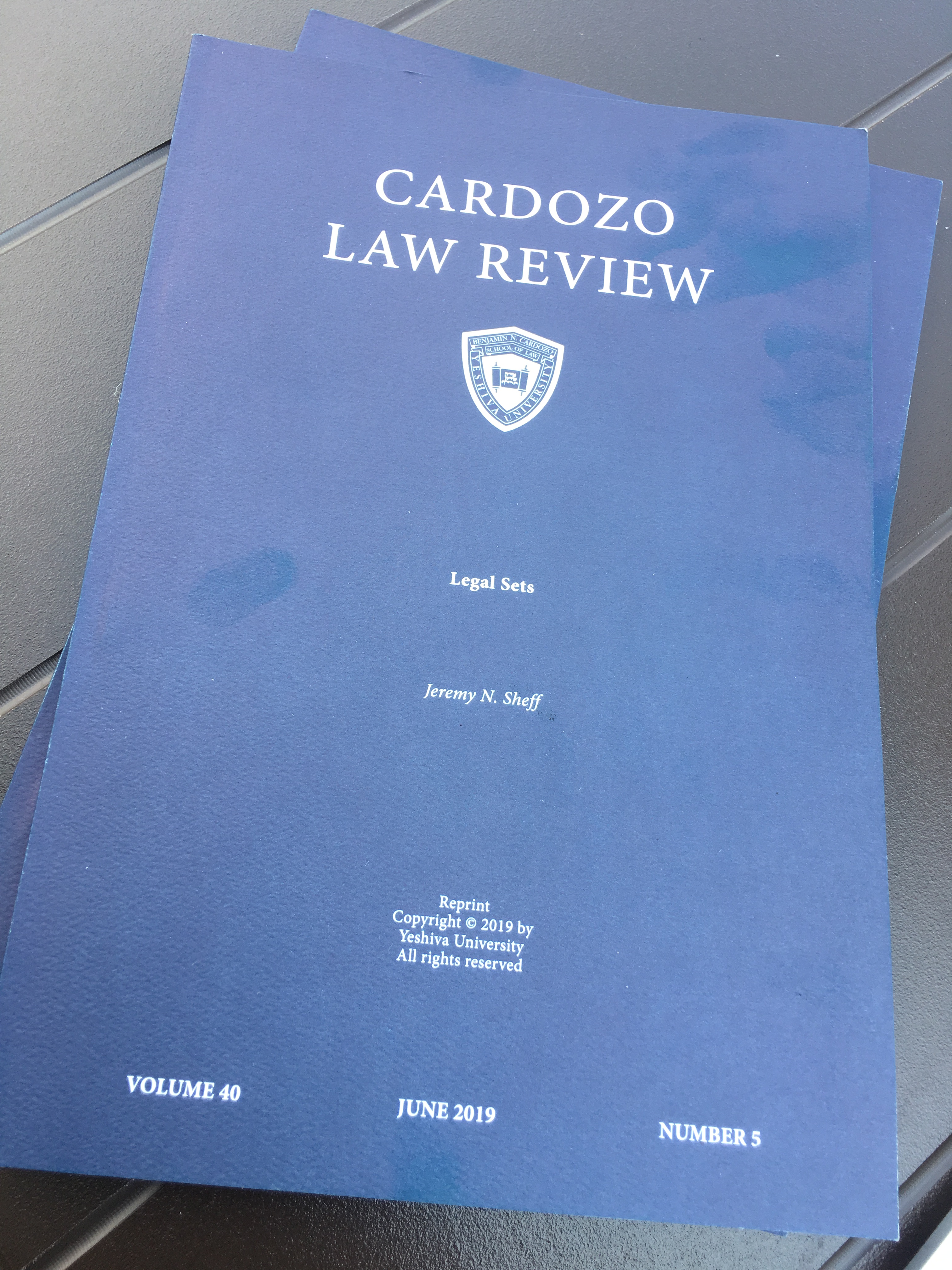It is not news that the United States Senate is a deeply anti-democratic institution. With population shifts sorting whiter, older Americans into low-population states and younger, more diverse Americans into high-population states, the anti-democratic bent of the Senate is becoming a systematic bias that will soon have the effect of delivering a veto over federal legislation and executive and judicial appointments to an increasingly insular and cohesive racial and demographic minority. But people who should know better also say there’s nothing to be done about it, because Article V of the Constitution provides that the Amendment process is qualified to the extent that “no state, without its consent, shall be deprived of its equal suffrage in the Senate.” We’re stuck with the anti-democratic Senate, the naysayers cluck, as if to think otherwise is hopelessly naive. Democracy in America was doomed from the start; the only way to fix it is to ditch the Constitution and start from scratch (and that’ll never happen anyway, so we may as well give up).
This defeatism does not befit a self-governing people. More importantly, it is hogwash. The Senate is not amendment-proof, and Americans who value democratic governance ought to be planning how best to do away with it. Any creative lawyer should be able to recognize that the supposed roadblock of Article V can be easily worked around. Article V says that no constitutional amendment can deprive any state of its equal vote in the Senate. It says nothing about how constitutional amendments may affect the powers of the Senate. If we can’t change who votes in the Senate, we can change what they get to vote on. And though such changes must clear the supermajority thresholds of the Article V amendment process, there are tools available to simple popular majorities to create the pressure necessary to clear such those thresholds. There is precedent for it, in fact: the United Kindgom followed this path a century ago.
First, we can dispense with the supposedly implacable Constitutional text. Article V poses no obstacle to amending the bicameralism requirement of Article I so as to make passage of bills by the House of Representatives sufficient to send a bill to the President for signature. It poses no obstacle to giving the House of Representatives (or some other body) the “advice and consent” responsibilities of the Senate over executive and judicial appointments, or the responsibility for ratifying treaties. It poses no obstacle to modifying the impeachment process so as to vest the power to remove federal officers in the House of Representatives alone, or to assign the trial of impeachments to some other body. There is literally nothing that the Senate does that cannot be assigned to some other institution by constitutional amendment. The fact that we would be left with 100 sinecures on the federal payroll is the only cost of such a strategy—and one that could be remedied by reducing the pay and staff of Senators in a manner consistent with the 27th Amendment’s limitations on varying the pay of legislators between elections.
But now, we come to the practical obstacles to amendment. Article V makes constitutional amendment very difficult. Supermajorities of both houses of Congress and super-duper-majorities of the state legislatures have to concur for such an amendment to pass. And it is difficult to imagine the states that benefit from having greater share of votes in the Senate than they would have in a proportionally apportioned legislature—which by definition constitutes a majority of the states—voluntarily giving those powers away. If the Constitution is to be amended to reallocate power away from the Senate, the states that stand to lose from such a reallocation need to have a reason to go along.
However, the Constitution also provides a vehicle to assert leverage over such states that does not require supermajority support: admitting new states. By an Act of Congress, new states can be admitted to the Union—with two new senators apiece and a vote on any proposed constitutional amendment. If an existing state consents by vote of its legislature, it can also be divided into multiple states by an Act of Congress; each new subdivided state would similarly be entitled to two senators and a vote on any constitutional amendment (application of this latter tool to sever Maine from Massachusetts was the key to the infamous Missouri Compromise). The Constitution imposes no population constraint on the creation of new states; my apartment can be a state if Congress certifies that it has “a republican form of government.” Many people have pointed out that a top priority for the next period of unified Democratic control over both houses of Congress and the White House should be statehood for Puerto Rico and Washington, DC; a few have gone so far as to toy with the “make more states” option. Serious action to ensure a democratically elected federal legislature will require a willingness to go much further: it will require a transparent agenda to “pack the Union.” This will require, at a minimum:
- a publicly-stated willingness to create enough new states that will predictably commit to reducing the Senate’s powers to command the 3/4 supermajority required to pass a constitutional amendment, and
- a credible and transparent plan to create these new states.
To implement such a plan would be clumsy, norm-breaking, logistically challenging. But it could be done, and it would not be extra-constitutional to do it. Most importantly, the willingness and ability to do it may make actually doing it unnecessary. That is, a credible threat to pack the Senate may be enough to fix—or effectively end—the Senate. We have good reason to think this, because such threats have been effective before—twice—in accomplishing very similar reforms in the United Kingdom.
The Liberal Party won a landslide in the UK parliamentary elections of 1906, and was (more narrowly) returned to government twice in two successive elections in 1910 on a platform of a progressive budget, home rule for Ireland, and substantial reforms to the House of Lords. The Lords, dominated by Conservatives, had consistently obstructed progressive budgets and other reform measures after the passage of such measures by the House of Commons–as well they might, given that the Liberal government proposed to curtail their power and tax their lands. But by threatening to pack the Lords with enough new Liberal-leaning peers to command a majority, Prime Minister H.H. Asquith ultimately succeeded in strong-arming the Lords into passing the Parliament Act 1911. The Act did to the House of Lords what a moderate pro-democracy reformer in America today might like to see done to the U.S. Senate: it effectively removed the Lords’ power to refuse passage of money bills, and effectively converted their power to refuse passage of other bills to a power to delay such bills for a maximum of two years. (The Parliament Act 1949 reduced the Lords’ power of delay over non-money bills from two years to one—and was enacted using the power of the Commons under the Parliament Act 1911 to pass bills without the Lords’ consent.) The Lords and their allies in the Commons complained bitterly, but ultimately, Conservative peers were put to the choice between giving some of the powers of their House to the Commons forever or losing all of the powers of their House to the Liberals for the foreseeable future, and chose the former.
Asquith’s threat to pack the peerage had precedent too: it was exactly the strategy used by the Whig Prime Minister Charles Grey to expand the franchise and meliorate the shameful malapportionment of the House of Commons with the passage of the Great Reform Act of 1832. Again, the threat to pack the Lords was was enough: the Tories who followed the Duke of Wellington, having successfully blocked Reform Bills for years, capitulated once they learned that William IV was (reluctantly) willing to support Lord Grey’s request to appoint a slew of Whig peers.
What I propose is not “One Simple Trick to Save American Democracy.” I do not mean to suggest that this type of reform was easy in the UK, or that it will be easy in the United States. 18th-19th Century Whigs and 19th-20th Century Liberals had to build a popular movement committed to their reforms, then consistently win elections on the strength of that movement for several years, and ultimately see their democratically validated demands repeatedly rebuffed by anti-democratic institutions before the continued pressure to accede to those demands became irrepressible. In the Whigs’ case, that pressure included the mass violence of the Swing Riots and the Days of May: the closest Britain ever came to a violent popular revolution. The Liberals pushed through the Parliament Act 1911 without such violent uprisings, but with the crucial support of two factions that were structurally underrepresented in the electorate and deeply associated with the threat of such violence in the minds of the English Conservative establishment: Irish nationalists and organized labor.
I do not mean to issue a call to political violence, but I do mean to be clear that the mere availability of constitutional tools for democratic reform will never be sufficient to overcome constitutionally empowered anti-democratic institutions opposed to such reforms. Nor will asking politely and waiting patiently. There must be a credible threat of constitutional norm-breaking in order to use such tools effectively; and such a threat is only credible (and warranted) when supported by persistent, well-organized, and genuinely popular movements that in turn back up the threat of constitutional norm-breaking with the prospect of deep social dissolution if anti-democratic institutions do not accede to democratic demands. Ominously, anti-democratic elites must also be sufficiently sensitive to the risks of social dissolution that they will recognize when their resistance to democratic reform has become untenable. Deep constitutional traditions of royal deference to electoral results (informed by the violent origins and tenuous foundations of constitutional monarchy) in eras of global social transformation did the trick for William IV, Edward VII, and George V; it isn’t at all clear that our anti-democratic elites are sensitive to such considerations.
But the fact that democratic reform is hard is no excuse for not putting in the work to make it happen. Precedent for de-fanging the reactionary and anti-democratic “upper” house of a national legislature is readily available—and it has been proven to be both durable and, ultimately, extremely popular. There is no reason why the United States should be a century behind the United Kingdom in reforming its national legislature to align with democratic principles. Americans who take democracy seriously should be mobilizing to support a credible threat of packing the Senate, as a second-best alternative to amending the Constitution to remove its powers. They should be making plans to admit new states and divide existing states so as to assure passage of constitutional amendments reallocating the Senate’s powers to other institutions. And they should be explicitly including these plans in their agendas and platforms, and be prepared to organize and mobilize voters to support these plans consistently and strategically over a long period of time. And they should, ultimately, be prepared to forego the implementation of such plans only if those who benefit from the anti-democratic structure of the Senate act to relinquish those benefits.


 Over the past month, as the user experience on Twitter changed under new management, millions of people have migrated to the decentralized social media platform
Over the past month, as the user experience on Twitter changed under new management, millions of people have migrated to the decentralized social media platform 
 Published Version Available Here
Published Version Available Here